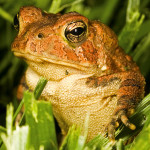Back in the days when there were such things as physical bookstores, people had full time jobs doing nothing but ordering books. You met with publishing representatives, dined at the rep’s expense, and when you got back to the office you flipped through catalogs of upcoming releases and decided what titles you’d carry, and how many copies. You filled out order forms in long hand, and you became intimate with inventory management software of the same vintage as Lotus 1-2-3. You also got free books. More books that you could read.
One book I did find time to read (after the bookstore closed) was Charles Nicholl’s The Creature on the Map. Reconstructing Walter Raleigh’s historical journey to find El Dorado is Nicholl’s overt purpose, but his prose does not shy away from lyricism. He describes the inability of Raleigh (or anyone) to find El Dorado:
“The last, synaptic gap is never bridged. No one ever gets there. There is only the journey, the approach towards something that you cannot reach, something… that you dare not reach.”
That resonates with me, even now that the city in the Amazon which no one believed existed (outside men like Raleigh) has been revealed as a reality, albeit without the streets of gold.

